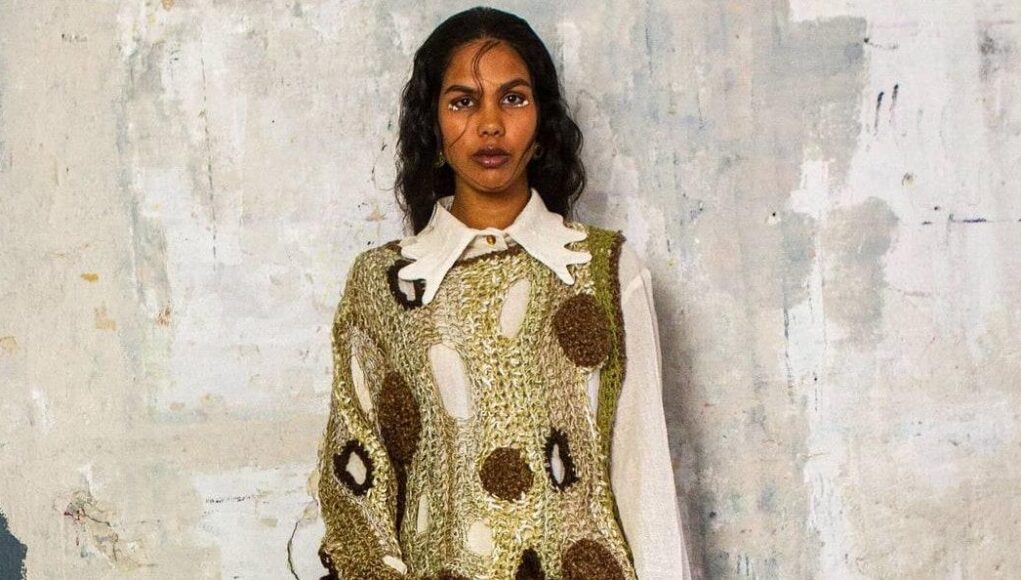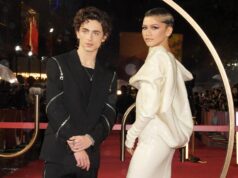Sustainable fashion is more than a buzzword. More than ever before, emerging fashion labels are implementing sustainable design processes, and finding clever ways to reduce their environmental footprint. Designers like Amsterdam’s Mohamed Benchellal, for instance, are upcycling by turning military uniforms into ball gowns, while Dutch designer Duran Lantink turns unsold designer-label clothes—from Balenciaga to Proenza—into new creations. But there’s a new label in Copenhagen that is taking this spirit further by creating eco-friendly pieces that physically mimic nature. That would be Solitude Studios, whose seaweed bags and earthy knits could easily blend into a forest.
The label’s co-founders—Jonas Sayed Gammal Bruun and Emil Wæde Frederiksen—met while studying design in a production school in Denmark a few years ago. “It’s [a school] for youth who don’t really know where they’re going; it’s a middle stop before you go through with an education,” says Bruun. The duo found that they shared an appreciation for nature and sustainably-minded design, and talked about starting a label. Three years ago, they finally launched Solitude Studios, to focus on their like-minded vision full-time. “We’re drawn to how humans interact with nature,” says Bruun. “We were very in touch from the start about where we wanted to go,” says Frederiksen. (Now, the brand is carried in retailers such as APOC and Tokyo’s Radd Lounge.)
That organic philosophy is evident in one of the first pieces they made, the seaweed bag, which has become one of their most popular items. “I wanted to make a bag that looks like you’re wearing a bowl of grass, but it ended up looking like seaweed,” says Bruun. “We work with leftover textile waste from production [factories], mostly cotton or rayon, and layer it onto the bag. It has an organic feel—like we just dragged it out of the swamp.” As the bag became popular, the designers evolved the mossy look, applying it onto the trim of jackets, and even over shoes. “The ‘seaweed’ has become our signature material,” says Bruun. “We look at new ways to experiment with it.”
It’s not all so rough and textural, though. The label also has more refined pieces, like its wool crochet bucket hats, or its “field of flowers” button-up shirt, made from cotton with upcycled, sewn cutouts applied onto it. Nature, unsurprisingly, always serves as the inspiration for their designs—no matter how literal. “I try to go for a walk in the woods at least once a week, to look at nature and animals,” says Bruun.










